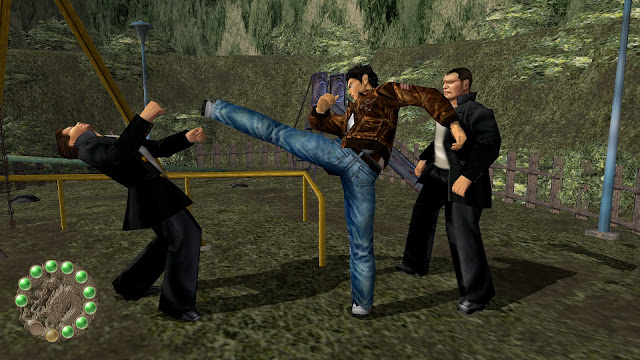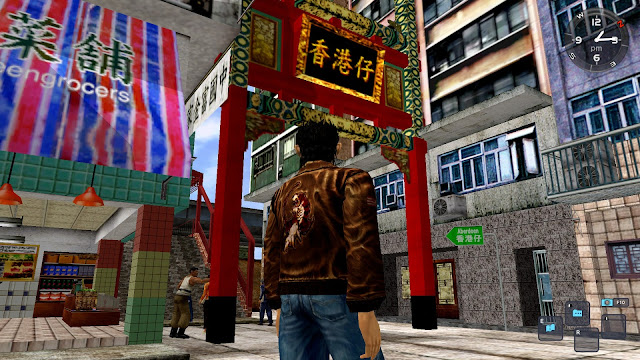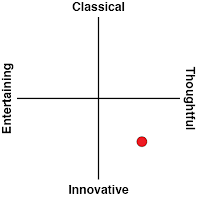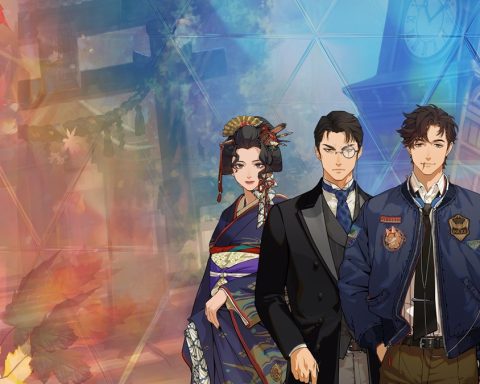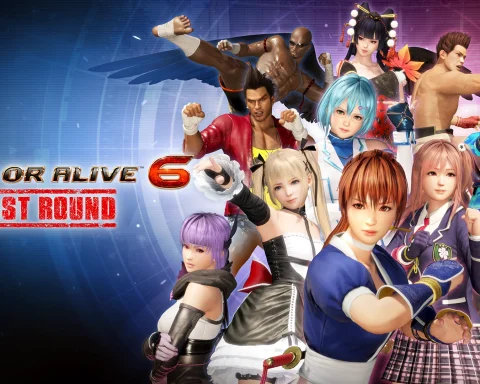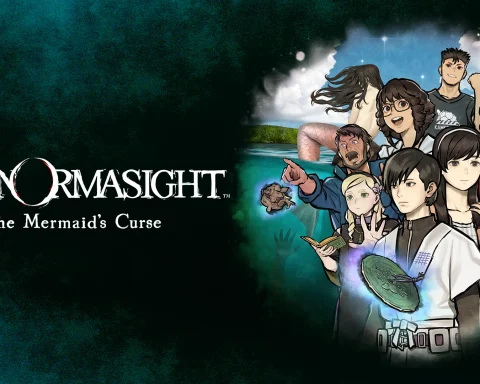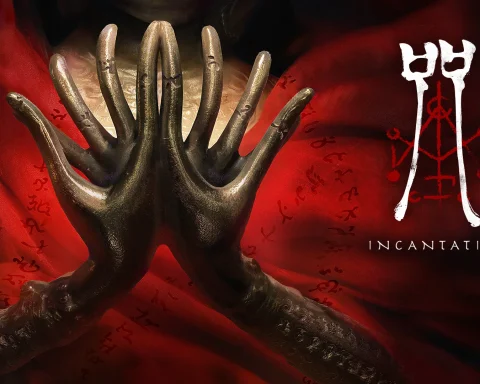Review by Matt S.
R.A Salvatore, the author of the Dungeons & Dragons Drizzt Do’Urden novels, is not one of the great philosophers of all time, but his books always have a bit of philosophical reflection in them to open each chapter. His reflections on nostalgia, found in one of his books (Streams of Silver) are the perfect way to frame a discussion on Shenmue and its sequel.
“Nostalgia is possibly the greatest of the lies that we all tell ourselves,” the passage goes. “It is the flossing of the past to fit the sensibilities of the present. For some, it brings a measure of comfort, a sense of self and of source, but others, I fear, take these altered memories too far… how many people long for that ‘past, simpler, and better world,’ I wonder, without ever recognising the truth that perhaps it was they who were simpler and better, and not the world around them?
Nostalgia is a necessary thing, I believe… at the same time, if nostalgia precipitates actions to return to that fabled, rosy-painted time, particularly in one who believes his life to be a failure, then it is an empty thing.”
Effectively what Salvatore is on about that is a well-known problem with the way we look at events and experiences deep in our memories (nostalgia). It’s a comforting thing to fondly remember the past, but in far too many cases, it’s also something that if we are given the chance to experience it again, we would quickly realise isn’t as good as our memories lead us to believe. The problem is that memories, being the unreliable things that they are, have the habit of washing over the less pleasant elements in order to bring the best out of a situation. Shenmue and Shenmue II are certainly examples of games that are remembered more fondly for what they were, than what they are. What people remember about the Shenmue duo is the brilliant narrative, and we’ll get to that later in the review, but on the technical side of things, playing these titles again will give more than a few people a sharp reminder that their memories and reality don’t always match up.
Both Shenmue titles were famous for their sheer ambition, and what was achieved given the constraints of the technology at the time. The original Shenmue was the most expensive game ever made at the time, with as much as $US70 million being poured into the project in production and marketing costs, and while it certainly showed everything that the Sega Dreamcast was capable of, it was also a commercial catastrophe. After the sequel didn’t turn things around the series went into development hell before being resurrected by Kickstarter. A platform that has proven very effective at giving people the ability to throw money at scratching one nostalgic itch or another. But if Shenmue 3 doesn’t push away from its predecessors in a substantial way, I fear that it’s going to be very poorly received indeed.
Shenmue and its sequel are incredibly difficult games to review, because their brilliance and ambition was in being well ahead of their time, and what amazed the audiences of yesteryear tend to be things that we don’t really pay attention to now. The idea of giving players an earnest and detailed slice of Japanese life has been taken so much further in Yakuza, for example. I had to force myself to remember how fascinating I thought the arcade of Shenmue was when I first played the game back on the Dreamcast, because it let you actually play arcade games in there. Not just wander around a space with graphical representations of games. You could actually play games in the arcade. Back then that was amazing. I remember the idea of being able to wander into a bar and play darts to be incredibly immersive. And the ability to get a job as part of a daily routine and earn some money was a pretty sweet “living in a Japanese town” experience.
Now, of course, thanks to Yakuza we’re used to running around playing dozens of these kinds of mini games covering everything from slot car racing to mahjong and sex chatlines, running hostess clubs, managing an entire gang on the streets, and having a dozen different arcade games to choose between. It makes Shenmue, once impressive for being expansive, suddenly feel limited, and that makes it difficult to appreciate its efforts in building the slice of life experience. Other “retro” games, such as the original Super Mario Bros or Final Fantasy VI, can still impress for their very obvious qualities in level design and storytelling, respectively. But Shenmue’s qualities are now less visible, less obvious. They’ve been learned from and superseded.
And there are other mind-blowing elements of Shenmue that are also hard to look at now and understand why they were such a big deal. Quick-time events, which Shenmue all-but pioneered, are now at the point where they generally annoy people, so their presence in Shenmue takes what once felt like a really impressive way of making cinematic feats controllable and means it’s longer nearly as enjoyable. Most critically of all, Shenmue’s entire world works on a 24-hour system, with every character having their own daily routines. That was one of the biggest steps forward in “realism” in video games back in the day, but Shenmue’s application of it has lost a great deal of its luster now that many, much bigger, open world games have those kinds of features, and the AI in those games do much more with their time and routines than they did here. Watching a shop close up for the night and then being able to follow the shopkeeper as he wandered back to his home no longer gives players the sense that these were more than just NPCs waiting at the beck and call of the player’s actions, as was once the case.
In short, so much about what impressed people about Shenmue is now stuff that is no longer comes across as impressive, to the point that it’s hard to see why there was such a fuss made about it in the first place.
Shenmue has some other positively archaic features that just have to be mentioned as things that have, thankfully, mostly disappeared from video games. Most egregious of those is actually having to physically wait for a specific time on the clock to tick by; too frequently I had to put the controller down and watch the clock for the in-game morning to turn to night, because I needed to activate a moment in the plot, but it was locked to a certain time of day. There was nothing much else to do but wait. It wasn’t until Shenmue II that something as simple as a way to speed up time was introduced (and made Shenmue II the far more playable of the two).
Finally, in my list of complaints with Shenmue and its sequel, the technical quality of the port itself is generally poor. As a port rather than a remaster enhancements are minimal (and this is really noticeable with the low resolution voice recording), and the port even managed to stick some bugs in there; at one point in the first Shenmue cut scenes stopped working for me completely, and left me staring at a plank of wood while I waited for the dialogue to play out.
Despite all of the above, though, there is a lot to respect and love about Shenmue. Firstly – and by far most importantly – it tells one truly absolutely incredible story. Between the two Shenmue titles, you get a story that’s equal parts revenge quest, coming of age, and slice of life that spans both Japan and China. It balances characterisation, drama, martial arts philosophy and mystery so perfectly it’s hard not to wish the games were a commercial success so there could have also been a film. The characters are vividly drawn and memorable, and the storytelling efficient while also being emotive in a way that I feel a lot of modern narratives could learn from. Bloat isn’t depth, game writers! With expertly-timed twists and turns, and simply watching the story unfold is right up there with the most perfect examples of what I’d call a “digital page-turner”, and, even through I already knew how both stories played out, I still found myself glued to the screen at this opportunity to play through them again.
Shenmue certainly looks its age. I know I’m always saying that “realism” doesn’t age nearly as well as more abstract art styles, such as minimalism, pixel art, or cel-shaded anime-style design, and these two games are proof-positive of that. What was once incredible for the level of detail that it offered players not looks very fuzzy and lacking in visual depth. However, at the same time, thanks to those dynamic daily routines, Shenmue also does a really lovely job of giving you the feeling that you’re watching the daily lifestyle of Asian villages and cities play out as you run around. The aesthetics look rough with age, but they’re accurate, and the transitions between day and night remain quite beautiful to witness. Playing this game back-to-back with Yakuza Kiwami 2 (which I’m reviewing later on in the week) has shown me that in terms of their ability to make me look forward to heading back to Japan, both franchises are at a true parity.
It’s worth noting is that because so much of Shenmue is effectively a “walking simulator,” which just sets you the task of running errands around town and following a trail of breadcrumbs, most of it remains every bit as playable today as it was then, where many other early era 3D games would be a mighty struggle for the modern player. Wandering around town, speaking to people, and figuring out where you need to go next is all clean and straightforward. Quick time events are generally over quickly, and while the actual fights have not aged well at all (especially compared to how thematically similar they are Yakuza), those are mercifully infrequent. The only moment I really struggled was against the final boss of the original Shenmue. And that in itself is fine because I remember struggling in that fight mightily back on the Dreamcast too. Just a hint for players – don’t neglect your training throughout the game. It’s easy to do, but don’t neglect it.
I really must emphasise this; while I spent a lot of time in this review highlighting that much of Shenmue and its sequel doesn’t live up to the nostalgia that people have to it, as a work of narrative its strengths so completely outweigh its weaknesses that it’s still something that everyone should play. It’s a critical part of the history of game development, and while I don’t know if their re-release will “sell” anyone on Shenmue 3, it’s a useful refresher course for something that people haven’t been able to play on modern consoles for quite some time. If nothing else, the simple reality that Shenmue is again a living franchise is, all by itself, something truly amazing.
– Matt S.
Editor-in-Chief
Find me on Twitter: @digitallydownld
 |
| Please Support Me On Patreon!
|


